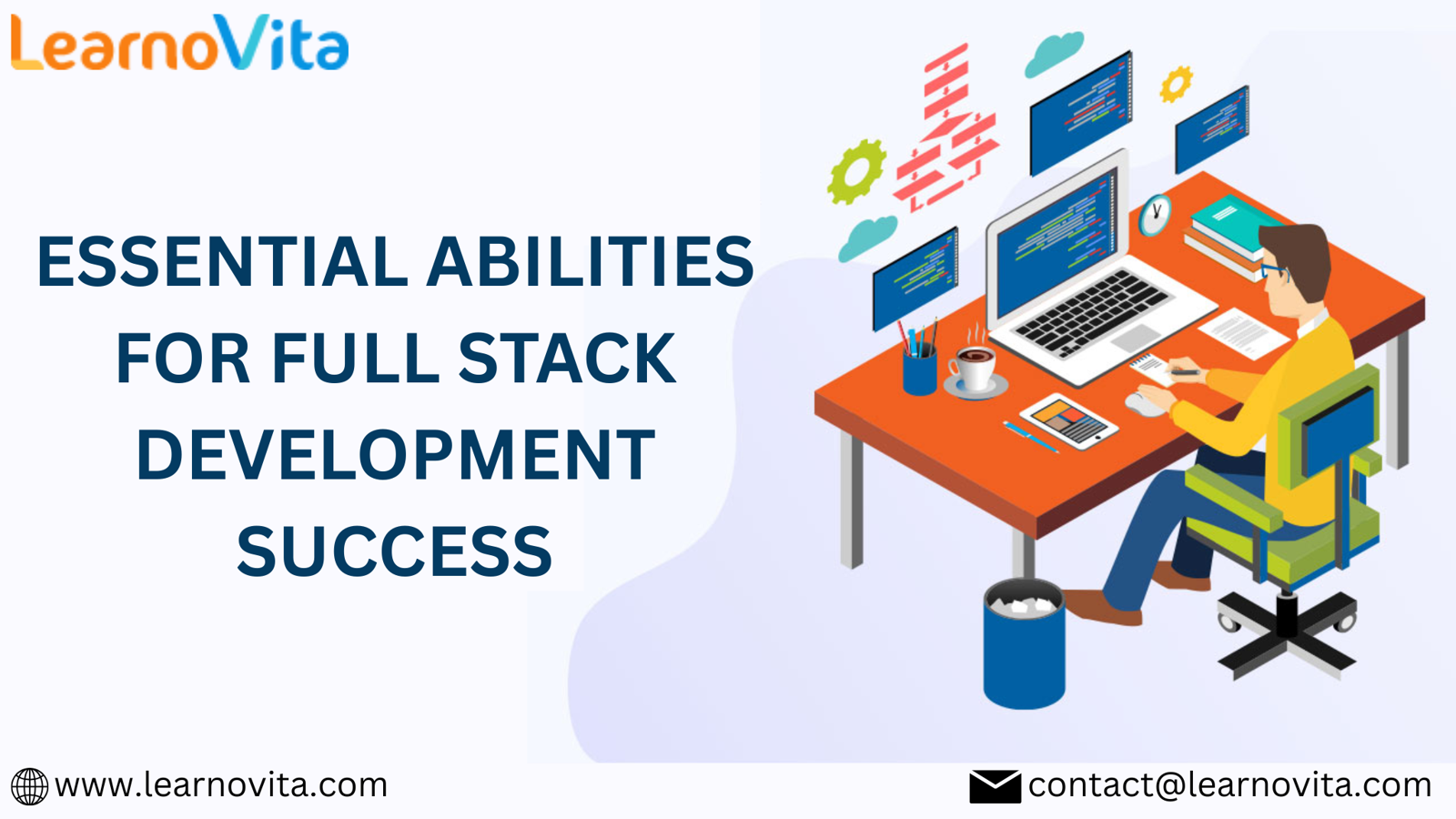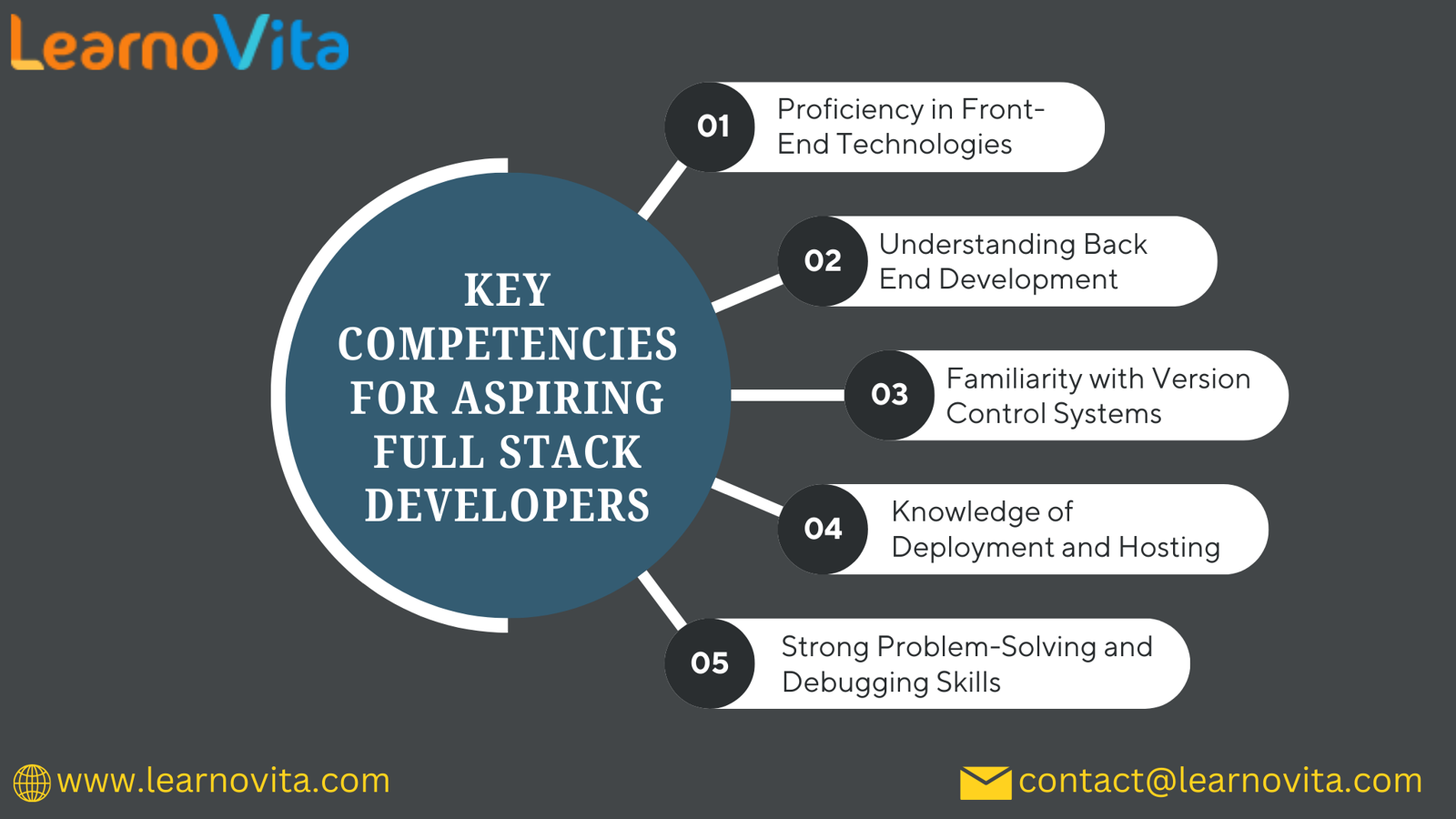Crucial Expertise Required for Full Stack Development

1. Proficient in Front-End Technologies
The front end is the face of any web application, and as a full stack developer, you must be adept at creating engaging user interfaces.
Essential Skills:
- HTML & CSS: Master the basics of web structure and styling.
- JavaScript: Become proficient in JavaScript, the language that enables interactivity.
- Frameworks/Libraries: Familiarize yourself with popular frameworks like React, Angular, or Vue.js to streamline development.
2. Solid Back-End Development Skills
While the front end captures user attention, the back end ensures everything runs smoothly behind the scenes.
Essential Skills:
- Server-Side Languages: Learn languages such as Node.js, Python, Ruby, or PHP.
- Frameworks: Get comfortable with frameworks like Express.js (for Node.js), Django (for Python), or Ruby on Rails.
- API Development: Understand how to create and consume RESTful APIs.
3. Database Management
Data is at the heart of many applications. As a full stack developer, you need to manage how data is stored, retrieved, and manipulated.
Essential Skills:
- SQL Databases: Gain expertise in relational databases like MySQL or PostgreSQL.
- NoSQL Databases: Understand non-relational databases like MongoDB.
- Data Modeling: Learn how to design efficient database schemas.
4. Version Control and Collaboration Tools
In a collaborative environment, version control systems are vital for managing code changes and collaboration.
Essential Skills:
- Git: Become proficient in using Git for version control.
- Platforms: Familiarize yourself with platforms like GitHub or GitLab for code hosting and collaboration.
- Branching Strategies: Understand how to use branching and merging effectively.

5. Understanding of DevOps Practices
Integrating DevOps practices can greatly enhance your development workflow and efficiency.
Essential Skills:
- Continuous Integration/Continuous Deployment (CI/CD): Learn about tools like Jenkins, Travis CI, or CircleCI.
- Containerization: Get comfortable with Docker and container orchestration tools like Kubernetes.
- Cloud Services: Familiarize yourself with cloud platforms such as AWS, Azure, or Google Cloud for deploying applications.
6. Testing and Debugging
Quality assurance is crucial in delivering robust applications.
Essential Skills:
- Unit Testing: Learn to write unit tests using frameworks like Jest or Mocha (for JavaScript) and PyTest (for Python).
- End-to-End Testing: Understand tools like Selenium or Cypress for testing user flows.
- Debugging Techniques: Develop debugging skills to diagnose and resolve issues efficiently.
7. Soft Skills and Problem Solving
Technical abilities are important, but soft skills are equally crucial for career success.
Essential Skills:
- Communication: Cultivate effective communication skills for collaborating with team members and stakeholders.
- Time Management: Learn to prioritize tasks and manage your time effectively.
- Adaptability: Stay open to learning new technologies and adapting to changing requirements.
Conclusion
Becoming a successful full stack developer requires a blend of technical expertise and soft skills. By mastering the areas outlined above, you’ll be well-equipped to tackle a variety of challenges in web development. Embrace continuous learning, stay curious, and don’t hesitate to collaborate with other developers. The journey to becoming a full stack developer is rewarding and full of opportunities!

Comments
Post a Comment